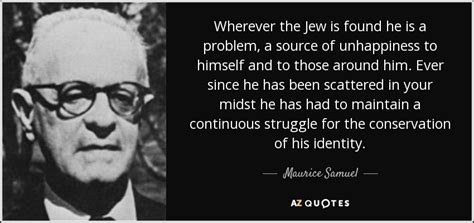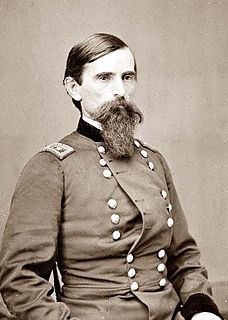A Quote by Albert Einstein
If men as individuals surrender to the call of their elementary instincts, avoiding pain and seeking satisfaction only for their own selves, the result for them all taken together must be a state of insecurity, of fear, and of promiscuous misery.
Related Quotes
Pain nourishes courage. You can't be brave if you've only had wonderful things happen to you. Pain is inevitable. Misery is optional. Physical pain is a fact that comes with living, just as illness or financial woes or broken relationships are facts. But misery is a state of mind, a reaction to the facts, that can be controlled or altered by an act of will.
There are people whose eyes you must avoid, whose attention you must not draw to yourself. They are strange, parasitic creatures, lost souls seeking to stretch across the abyss and make fatal contact with the warm, constant flow of humanity. They live in pain, and exist only to visit that pain on others. A random glance, the momentary lingering of a look, is enough to give them the excuse that they seek. Sometimes, it is better to keep your eyes on the gutter for the fear that, by looking up, you might catch a glimpse of them, black shapes against the sun, and be blinded forever.
We Jews are accused of being destroyers: whatever you put up, we tear down. It is true only in a relative sense. We are not iconoclasts deliberately: we are not enemies of your institutions simply because of the dislike between us. We are a homeless mass seeking satisfaction for our constructive instincts. And in your institutions we cannot find satisfaction.
True Godliness doesn't turn men out of the world, but enables them to live better in it, and excites their endeavors to mend it. ...We have nothing that we can call our own; no, not our selves: for we are all but Tenants, and at Will, too, of the great Lord of our selves, and the rest of this great farm, the World that we live upon.
Lack of understanding of the true nature of happiness, it seems to me, is the principal reason why people inflict sufferings on others. They think either that the other's pain may somehow be a cause of happiness for themselves or that their own happiness is more important, regardless of what pain it may cause. But this is shortsighted. No one truly benefits from causing harm to another sentient being. . . . . In the long run causing others misery and infringing their rights to peace and happiness result in anxiety, fear, and suspicion within oneself.
There are men who bloom in chaos. You call them heroes or villains, depending on which side wins the war, but until the battle call they are but normal men who long for action, who lust for the opportunity to throw off the routine of their normal lives like a cocoon and come into their own. They sense a destiny larger than themselves, but only when structures collapse around them do these men become warriors.





































